ing sustainable tourism
Sustainability is a key priority on the global agenda and Denmark is well aware of this. Not for nothing is it considered one of the most environmentally conscious countries in the world. Thus, thanks to various measures implemented by its government, the Danish country is leading the way towards sustainable tourism and a green economy.
The latest of these is CopenPay, an innovative initiative by Wonderful Copenhagen, which seeks to promote sustainable tourism through a rewards programme. The aim of this approach is not to increase tourism in the Danish capital, but to make it more sustainable and enjoyable, both for visitors and for the city itself.
All our decisions have an environmental impact, so why not make conscious choices that benefit us all and be rewarded for them?”- Visit Copenhagen.
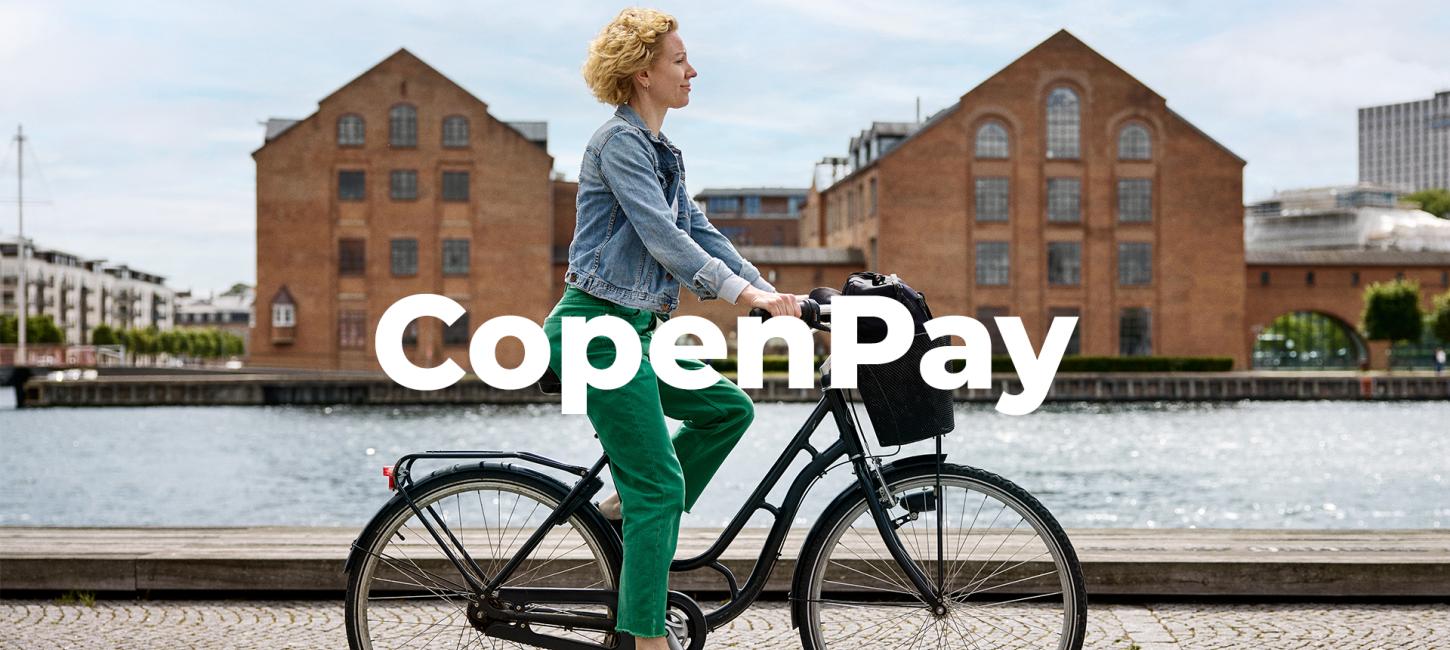
What is this innovative programme all about?
Every good deed has its reward, so the saying goes. Knowing that you have done good should be incentive enough to act. But if that’s not enough, you’ll find an extra reason to enjoy yourself in Copenhagen.
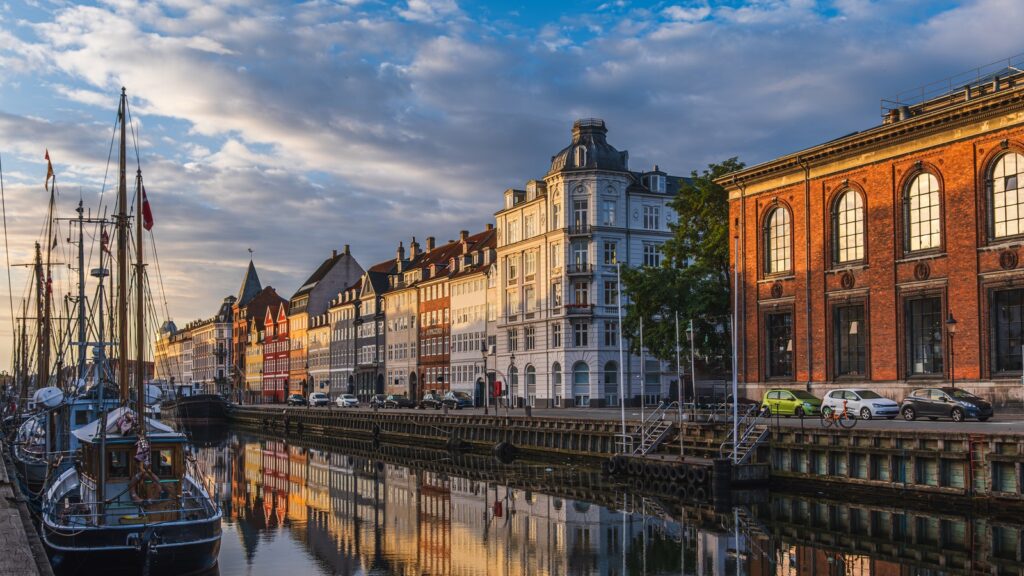
CopenPay is a project that rewards responsible actions. Tourists and residents alike have the opportunity to earn points for activities that contribute to the environment, such as cycling instead of driving or picking up litter from the canals. These points can then be redeemed for a variety of experiences within the city itself (from cups of coffee, ice cream and lunches to museum tickets and kayaking).
The pilot was launched this year between 15 July and 11 August. After this trial period, it is in the process of evaluation and data collection. It is expected to be officially launched in the near future, with the intention to remain active 365 days a year and to expand the concept to other parts of Denmark.
In this first test, there were different ways to earn points categorised into 3 levels: The first focused on basic sustainable actions such as cycling or public transport. The second was about going green; getting deeply involved in the green culture of the city by attending specific activities. The third, challenges and gamification, involved completing monthly and weekly challenges to unlock exclusive rewards. In this way, rewards were given according to difficulty, commitment and perseverance.
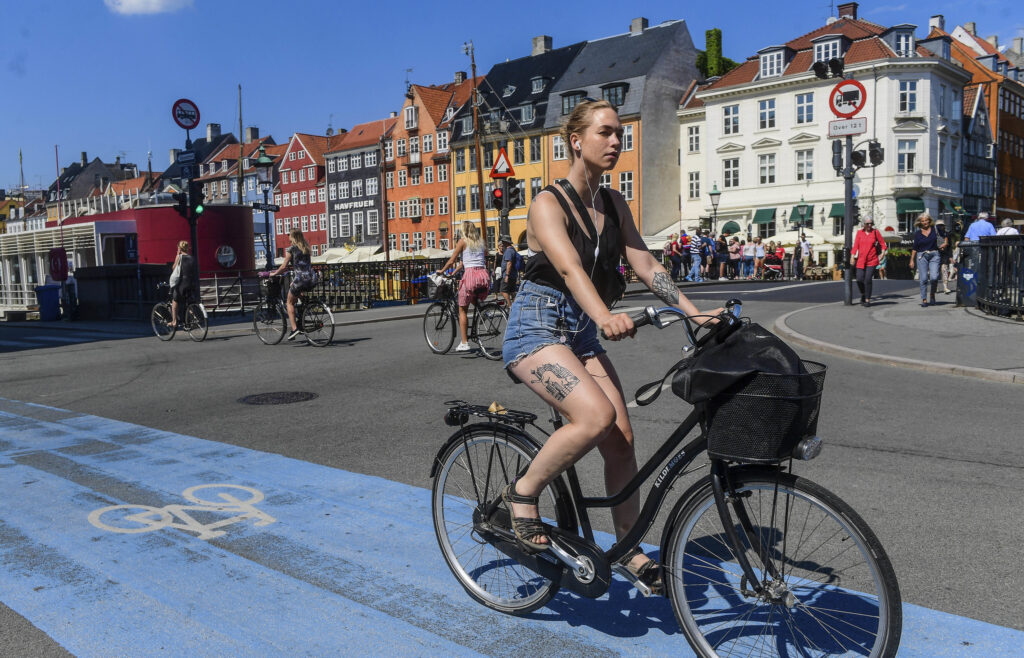
All activities are designed to encourage eco-friendly practices and a culture of responsibility, while at the same time enriching the participant’s experience through a playful approach.
But this incentive programme goes beyond that.
It aims to close the gap between the desire to act more sustainably and actual practice. An important gap, according to the sustainability index, when you consider that 4 out of 5 people would like to act, but only 1 has actually done so. Thus, CopenPay has the potential to change the way we look at travel and transform the tourism problem into a positive one.
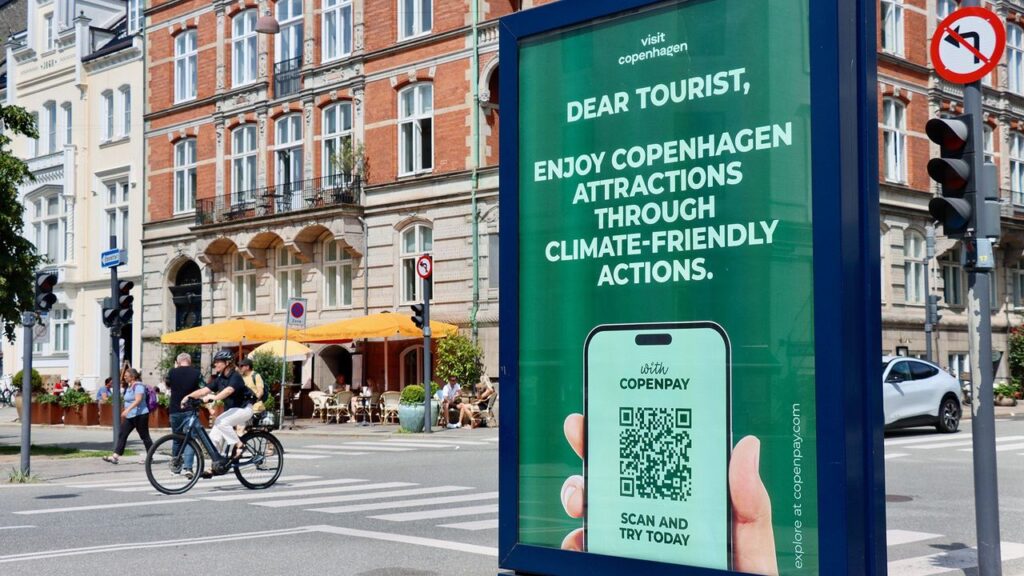
It is a first, preliminary step in a series of initiatives designed to transform travellers’ mindsets and encourage responsible habits. As Mikkel Aarø-Hansen, CEO of Wonderful Copenhagen, says, “it is important to change the way we move around the destination, what we consume and how we interact with locals“. Especially when we consider the problems generated by mass tourism in major tourist destinations in Europe and the rest of the world.
The downside of tourism
After the COVID-19 pandemic, the tourism sector was far from recovery. Many tourism businesses had to adapt to the new circumstances, while others were forced to close due to restrictions imposed in each country. Today, the picture looks completely different.
According to the World Travel & Tourism Council, the tourism sector is recovering its pre-pandemic figures. In fact, it is expected to surpass those levels this year. It is back to its best, providing a major economic boost to countries around the world and supporting millions of jobs. Robust growth now accounts for 9.1% of global GDP.
However, the increase in tourism has caused discomfort among locals, who find themselves caught up in a series of issues ranging from noise, crowds and pollution, to housing shortages and rising prices. Complaints have not been long in coming. In some of the most affected cities, measures have been taken to limit the excess of visitors and thus take care of their attractions. This is where CopenPay stands in contrast. While other cities have imposed entrance fees, bans and campaigns to deter tourists, Copenhagen rewards good behaviour.
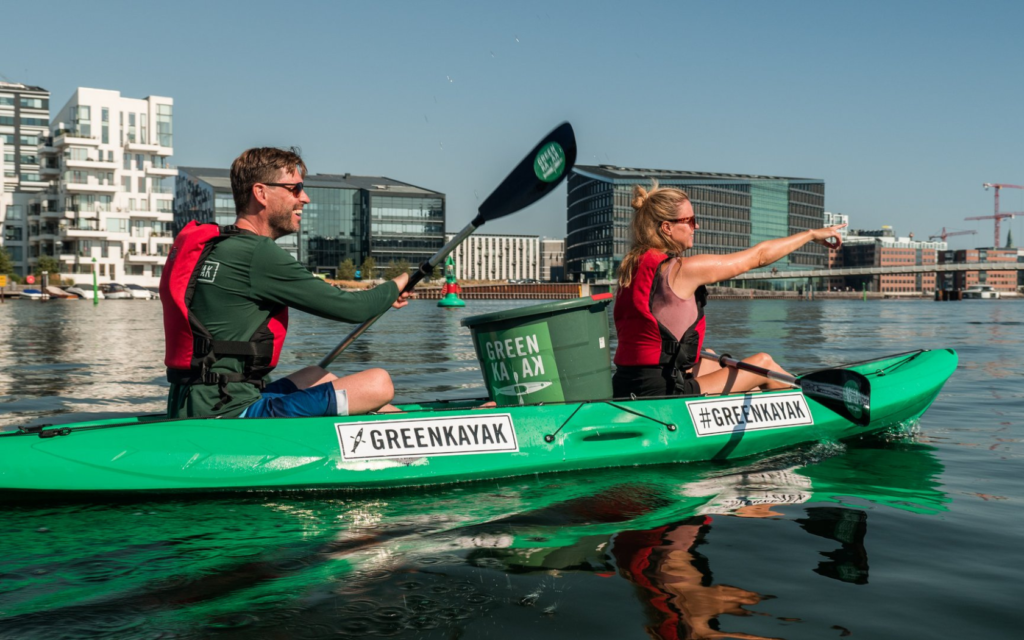
“It’s a matter of management“, Antje Martins told the BBC. The expert in sustainable tourism management – and trainer of the Global Sustainable Tourism Council – believes that beyond selecting the most suitable type of tourist, a coexistence must be achieved that allows the local population to benefit from tourism, especially in crowded destinations where a large part of the inhabitants live in poverty. So, “For whom is it a big income?” asks Martins.
When locals blame tourists for bad behaviour, it is not about the tourists. It is a sign that tourism management has failed” – Antje Martins.
A model of inspiration
When it comes to management, Denmark is a good example of how sustainable practices are included in all aspects of the lives of its inhabitants. In fact, Copenhagen ranks as the third most sustainable city in the world.
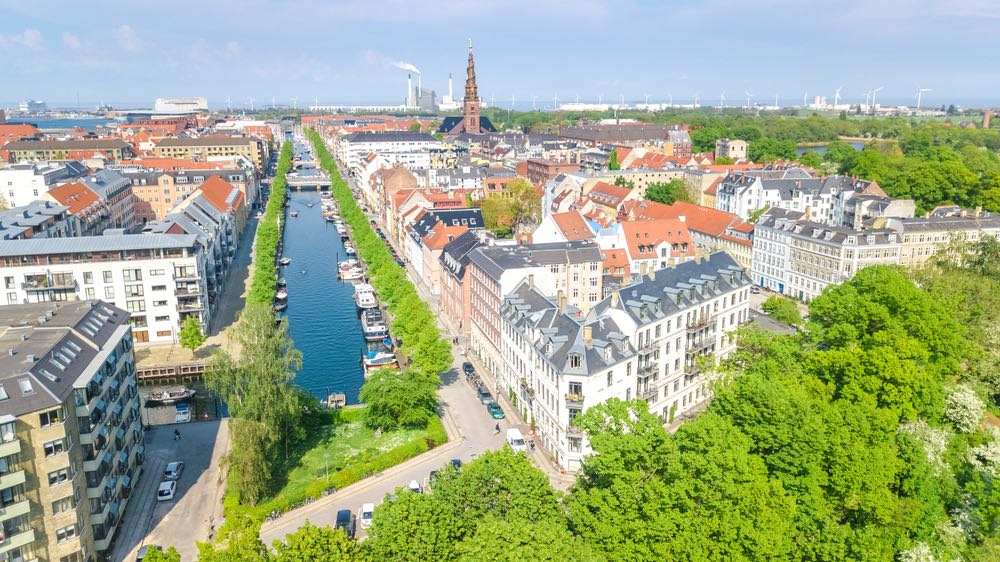
In this way, CopenPay is set to be a small step in the right direction, where tourism can be profitable and benefit cities rather than generate tensions, while creating both meaningful and responsible experiences.
With this approach, it aims to make the way of exploring the city more entertaining, without leaving engagement behind. It is a unique tourist experience, where you can discover unique aspects of the city, while contributing to preserving the environment and reducing your environmental impact.
The magnitude of the impact is yet to be determined. Many media doubt the effectiveness of the measure and the immediacy of its possible outcome. They consider that, while quite a few people may be interested in the idea, it is unlikely to be integrated into their holiday plans, partly due to the short duration of their stay at the destination. Only time will tell.
Either way, it will serve as an inspiration for the creation of similar strategies that promote good practices in tourism and benefit cities. That is the ultimate goal of CopenPay. To be a reference in the ideation of innovative solutions that take advantage of digital tools and foster collaboration between all the actors involved. After all, it is our planet.
You may also be interested in: The Hidden Reality of Tourism: Animal Exploitation.





